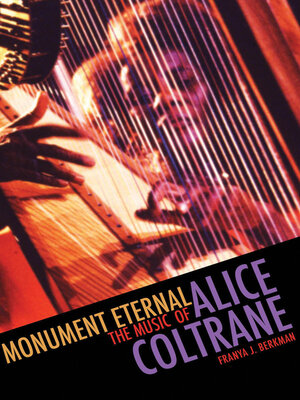
Sign up to save your library
With an OverDrive account, you can save your favorite libraries for at-a-glance information about availability. Find out more about OverDrive accounts.
Find this title in Libby, the library reading app by OverDrive.



Search for a digital library with this title
Title found at these libraries:
| Library Name | Distance |
|---|---|
| Loading... |
"Fascinating reading . . . [a] portrait of an innovative artist who discovered new ways of connecting musical and spiritual practices." —George Lewis, Case Professor of American Music, Columbia University
Alice Coltrane was a composer, improviser, guru, and widow of John Coltrane. Over the course of her musical life, she synthesized a wide range of musical genres including gospel, rhythm-and-blues, bebop, free jazz, Indian devotional song, and Western art music. Her childhood experiences playing for African-American congregations in Detroit, the ecstatic and avant-garde improvisations she performed on the bandstand with her husband John Coltrane, and her religious pilgrimages to India reveal themselves on more than twenty albums of original music for the Impulse and Warner Brothers labels.
In the late 1970s Alice Coltrane became a swami, directing an alternative spiritual community in Southern California. Exploring her transformation from Alice McLeod, Detroit church pianist and bebopper, to guru Swami Turiya Sangitananda, Monument Eternal illuminates her music and, in turn, reveals the exceptional fluidity of American religious practices in the second half of the twentieth century. Most of all, this book celebrates the hybrid music of an exceptional, boundary-crossing African-American artist.
"Richly contextualized, insightfully theorized, and musically rigorous, this work should contribute to a profound reappraisal of Alice Coltrane's legacy and contribution, of the often-neglected achievements of improvised music in the 1960s and 1970s, and of potent alter-narratives of African-American spirituality." —Michael E. Veal, Professor of Ethnomusicology, Yale University







